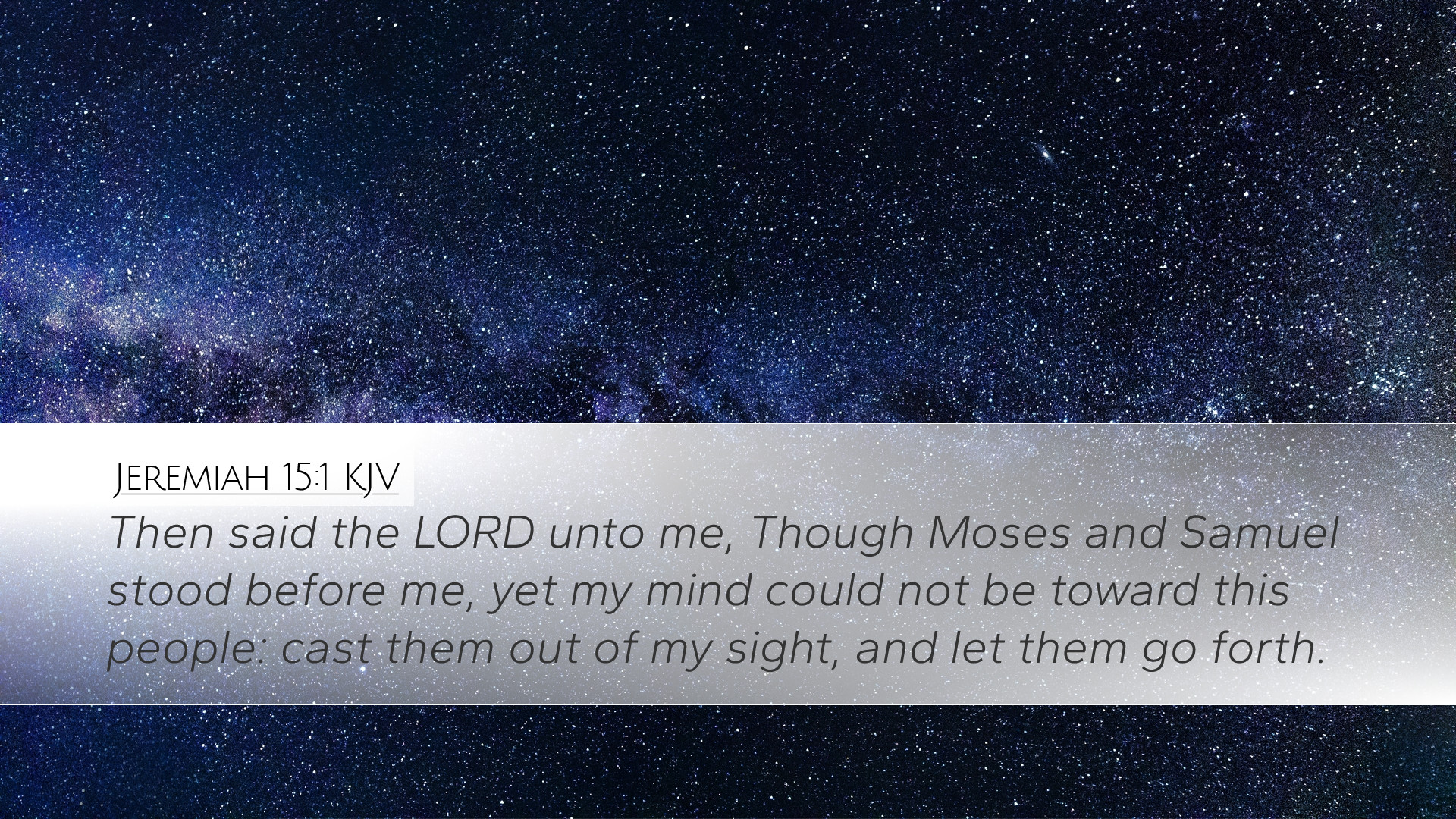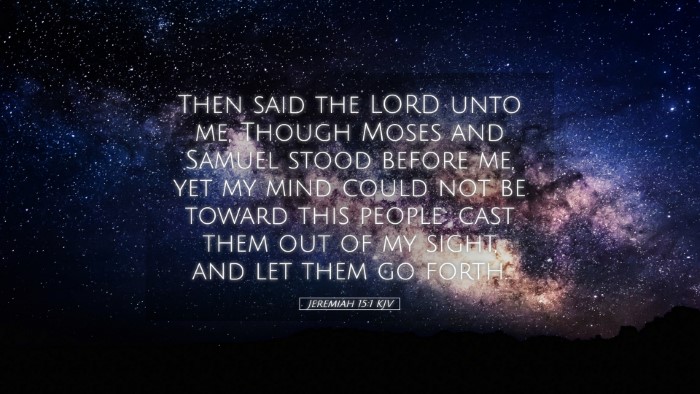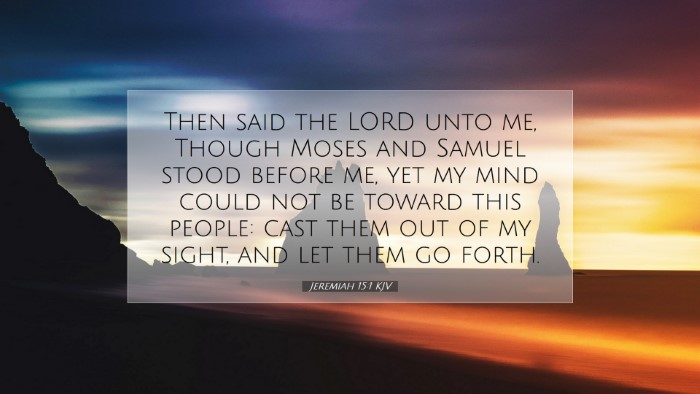Commentary on Jeremiah 15:1
This verse presents a moment of profound insight into the character of God, the nature of intercession, and the weight of prophetic ministry. It reads:
"Then said the LORD unto me, Though Moses and Samuel stood before me, yet my mind could not be toward this people: cast them out of my sight, and let them go forth."
Contextual Background
The book of Jeremiah captures the distress and turmoil of the prophet's heart as he witnesses the impending judgment on Judah. Jeremiah, known as the "weeping prophet," reveals the deep emotional struggles that accompany a call to prophetic ministry.
Exegesis of the Verse
In this verse, God responds to Jeremiah's intercessory plea on behalf of the people of Judah. The significance of mentioning Moses and Samuel, both esteemed intercessors, elevates the gravity of God's declaration.
1. Divine Dismissal of Intercessors
God asserts that even if Moses and Samuel—the two greatest intercessors known in Israel’s history—were to plead for this people, it would not change His mind. This shows:
- The Sovereignty of God: God's decisions are ultimately unassailable by human advocacy.
- The Seriousness of Judgment: The people's sin had reached a point of no return, highlighting the severity of divine justice.
2. The Role of Moses and Samuel
Moses and Samuel are significant figures in Israel’s history known for their intimate relationship with God and their powerful intercessions.
- Moses: Mediator of the Old Covenant who pleaded for mercy despite the people's rebellion.
- Samuel: A prophet who dedicated his life to guiding Israel back to God, both in leadership and prayer.
God’s mention of them indicates that the issue at hand is grave enough to supersede even the most earnest prayers from righteous men.
3. God’s Mindset Towards His People
The phrase "yet my mind could not be toward this people" reveals God’s sorrow and disappointment. It indicates:
- A Heartbreaking Reflection: God’s love for His people conflicts with their persistent rebellion.
- Divine Repentance: Although God does not change His mind as man does, He expresses a strong emotional response to human actions.
Theological Implications
This passage raises significant theological considerations, particularly concerning the dynamics of prayer and intercession.
1. The Power of Prayer
While God underscores the limits of intercessory prayer in this instance, it does not diminish the broader biblical truth concerning the efficacy of earnest prayer. The example of Abraham negotiating for Sodom and Gomorrah, or of Daniel praying for his people, all affirm that faithful intercession can have far-reaching effects.
2. The Nature of Divine Judgment
God's judgment is not arbitrary; rather, it is the result of persistent disobedience. This informs modern readers about:
- The Holiness of God: God cannot overlook sin without justice being served.
- The Patience of God: Despite His fierce judgment, God had patiently waited for repentance.
3. Intercessory Limitations
This verse serves as a reminder of the limitations that exist even within intercession, particularly when a community hardens its heart against God. It projects a sobering reality about:
- Corporate Responsibility: Communities bear collective accountability for turning from God.
- Danger of Stubbornness: A hardened heart can lead to irrevocable divine judgment.
Practical Applications for Modern Believers
Jeremiah 15:1 is not just a historical commentary; it provides rich insights applicable to the lives of believers today.
1. Advocacy in Prayer
Believers are encouraged to engage in fervent prayer and intercession, understanding that while they may not see the immediate results, their prayers align them with God's heart.
2. Recognizing the Consequences of Sin
The text invites reflection on personal and communal sin, pressing individuals to seek repentance and return to God before judgment is enacted.
3. Embracing God’s Sovereignty
In times of distress and suffering, one must hold fast to the belief in God’s overarching control and the purpose behind His actions. Trusting in His plan, even amidst calamity, is essential for spiritual fortitude.
Conclusion
Jeremiah 15:1 exemplifies the tension between divine judgment and human intercession. It encourages pastors, students, theologians, and scholars to grapple with the complexity of God's character, the seriousness of sin, and the grave responsibility of prophetic ministry. As we reflect on this verse, may we be inspired to uphold righteousness, fervently pray for our communities, and submit to the sovereign will of God.


